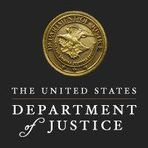The Storm Before the Vote: Navigating Misinformation and Foreign Interference in the 2024 Election
October 24, 2024, 6:40 am

Location: United States, District of Columbia, Washington
Employees: 10001+
Founded date: 1789
Total raised: $6.5M
As the 2024 election looms, the atmosphere is thick with tension. Misinformation swirls like a tempest, threatening to drown out the voices of voters. Election officials are caught in a relentless tide of conspiracy theories. Meanwhile, foreign adversaries lurk in the shadows, ready to exploit the chaos. The stakes have never been higher.
Election officials across the United States are battling a rising wave of misinformation. The digital landscape resembles a battlefield, where truth is often the first casualty. Social media platforms have become breeding grounds for falsehoods. These platforms amplify whispers into roars, creating a cacophony that drowns out factual information.
In Virginia, election overseers describe their struggle as navigating a small canoe against a monstrous wave. They paddle furiously, but the current is relentless. The challenges they face are not just technical; they are deeply personal. Harassment and threats have become commonplace. The specter of violence looms large, a grim reminder of the Capitol riot on January 6, 2021.
At the heart of this storm is former President Trump. His rhetoric has sown seeds of doubt about the integrity of the electoral process. He claims that Democrats will cheat, echoing accusations from previous elections. This narrative is not just a campaign strategy; it’s a blueprint for potential chaos should he lose. The phrase “Too Big to Rig” serves as a rallying cry, igniting fears and fueling division.
Election experts warn that this misinformation has dire consequences. It erodes trust in the electoral system, making voters question the very foundation of democracy. In Georgia, for instance, unfounded claims of “vote flipping” have surfaced, leading to confusion and anxiety among voters. Officials have repeatedly debunked these claims, emphasizing that human error, not machine malfunction, is to blame. Yet, the damage is done. The seeds of doubt have taken root.
The situation is exacerbated by foreign interference. A recent Microsoft report reveals that Russia, China, and Iran are actively seeking to sway American voters. These nations have denied any wrongdoing, but their actions tell a different story. Coordinated campaigns aim to deepen divisions among the electorate. The goal is clear: to disrupt and destabilize.
Russia’s tactics are particularly insidious. They have unleashed a barrage of disinformation targeting key political figures, especially Vice President Kamala Harris. Fake videos and fabricated narratives flood social media, aiming to tarnish her reputation. The Kremlin’s preference for a Trump presidency is evident, as they seek to undermine any opposition.
China, on the other hand, has shifted its focus to down-ballot races. By attacking Republican candidates who oppose its policies, it aims to weaken American democracy from within. The use of fake social media accounts to spread disinformation is a tactic straight out of a playbook designed to sow discord.
Iran, too, is playing a dangerous game. Amid ongoing tensions in the Middle East, it has weaponized public sentiment surrounding the Israel-Hamas conflict. By encouraging Americans to abstain from voting, it seeks to amplify dissatisfaction with the electoral process. This strategy is not just about influence; it’s about creating chaos.
As Election Day approaches, the potential for unrest grows. Intelligence officials warn that foreign actors may incite violence in the aftermath of the election. The landscape is fraught with uncertainty, and the risk of post-election turmoil looms large.
Despite these challenges, election officials remain resolute. They are committed to safeguarding the integrity of the electoral process. Their work is crucial, yet it often goes unnoticed. They are the unsung heroes in this tumultuous narrative, fighting against a tide of misinformation and foreign interference.
The battle against misinformation is not just about protecting votes; it’s about preserving democracy itself. As voters prepare to cast their ballots, they must navigate a minefield of falsehoods. The responsibility lies not only with election officials but also with the public. Voters must seek out credible information and question the narratives they encounter.
In this digital age, misinformation spreads like wildfire. It is imperative for individuals to be vigilant. They must verify sources and challenge claims that seem dubious. The health of democracy depends on an informed electorate.
As the storm brews, the nation stands at a crossroads. The choices made in the coming weeks will shape the future. Will voters succumb to the chaos, or will they rise above it? The answer lies in their hands.
In the end, the 2024 election is more than just a political contest. It is a test of resilience. It is a moment that will define the character of the nation. As the floodwaters rise, the call to action is clear: stand firm, seek truth, and protect the democratic ideals that bind us together. The time for complacency has passed. The time for action is now.
Election officials across the United States are battling a rising wave of misinformation. The digital landscape resembles a battlefield, where truth is often the first casualty. Social media platforms have become breeding grounds for falsehoods. These platforms amplify whispers into roars, creating a cacophony that drowns out factual information.
In Virginia, election overseers describe their struggle as navigating a small canoe against a monstrous wave. They paddle furiously, but the current is relentless. The challenges they face are not just technical; they are deeply personal. Harassment and threats have become commonplace. The specter of violence looms large, a grim reminder of the Capitol riot on January 6, 2021.
At the heart of this storm is former President Trump. His rhetoric has sown seeds of doubt about the integrity of the electoral process. He claims that Democrats will cheat, echoing accusations from previous elections. This narrative is not just a campaign strategy; it’s a blueprint for potential chaos should he lose. The phrase “Too Big to Rig” serves as a rallying cry, igniting fears and fueling division.
Election experts warn that this misinformation has dire consequences. It erodes trust in the electoral system, making voters question the very foundation of democracy. In Georgia, for instance, unfounded claims of “vote flipping” have surfaced, leading to confusion and anxiety among voters. Officials have repeatedly debunked these claims, emphasizing that human error, not machine malfunction, is to blame. Yet, the damage is done. The seeds of doubt have taken root.
The situation is exacerbated by foreign interference. A recent Microsoft report reveals that Russia, China, and Iran are actively seeking to sway American voters. These nations have denied any wrongdoing, but their actions tell a different story. Coordinated campaigns aim to deepen divisions among the electorate. The goal is clear: to disrupt and destabilize.
Russia’s tactics are particularly insidious. They have unleashed a barrage of disinformation targeting key political figures, especially Vice President Kamala Harris. Fake videos and fabricated narratives flood social media, aiming to tarnish her reputation. The Kremlin’s preference for a Trump presidency is evident, as they seek to undermine any opposition.
China, on the other hand, has shifted its focus to down-ballot races. By attacking Republican candidates who oppose its policies, it aims to weaken American democracy from within. The use of fake social media accounts to spread disinformation is a tactic straight out of a playbook designed to sow discord.
Iran, too, is playing a dangerous game. Amid ongoing tensions in the Middle East, it has weaponized public sentiment surrounding the Israel-Hamas conflict. By encouraging Americans to abstain from voting, it seeks to amplify dissatisfaction with the electoral process. This strategy is not just about influence; it’s about creating chaos.
As Election Day approaches, the potential for unrest grows. Intelligence officials warn that foreign actors may incite violence in the aftermath of the election. The landscape is fraught with uncertainty, and the risk of post-election turmoil looms large.
Despite these challenges, election officials remain resolute. They are committed to safeguarding the integrity of the electoral process. Their work is crucial, yet it often goes unnoticed. They are the unsung heroes in this tumultuous narrative, fighting against a tide of misinformation and foreign interference.
The battle against misinformation is not just about protecting votes; it’s about preserving democracy itself. As voters prepare to cast their ballots, they must navigate a minefield of falsehoods. The responsibility lies not only with election officials but also with the public. Voters must seek out credible information and question the narratives they encounter.
In this digital age, misinformation spreads like wildfire. It is imperative for individuals to be vigilant. They must verify sources and challenge claims that seem dubious. The health of democracy depends on an informed electorate.
As the storm brews, the nation stands at a crossroads. The choices made in the coming weeks will shape the future. Will voters succumb to the chaos, or will they rise above it? The answer lies in their hands.
In the end, the 2024 election is more than just a political contest. It is a test of resilience. It is a moment that will define the character of the nation. As the floodwaters rise, the call to action is clear: stand firm, seek truth, and protect the democratic ideals that bind us together. The time for complacency has passed. The time for action is now.


